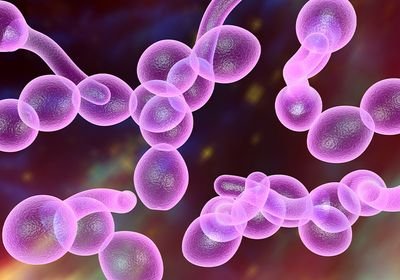Researchers pioneer unique systems biology approach against fungal pathogens
September 17, 2025 | Wednesday | News
Fungal pathogen called ‘Candida albicans’ is a major global health threat with a high mortality rate up to 63.6%
image credit- shutterstock
Wadhwani School of Data Science and AI (WSAI), IIT Madras and ICMR-National Institute for Research in Reproductive and Child Health (ICMR-NIRRCH) researchers have developed a one-of-a-kind approach to fight fungal pathogen called ‘Candida albicans’ (CAL).
This multidisciplinary approach employed an integrated systems biology approach - combining large-scale computational modelling and experimental validation - to identify unknown critical metabolic vulnerabilities in C.albicans. It is the primary cause of Systemic Candidiasis, a major global health threat with a high mortality rate up to 63.6% in severe cases.
The rise of drug-resistant strains and lack of new antifungal drugs underline the urgent need for new therapeutic options. The current drug discovery methodologies often rely on traditional trial-and-error screening, a time-consuming and inefficient process for identifying novel targets.
Highlighting the importance of this research, Prof. Karthik Raman, Faculty, IBSE, WSAI, IIT Madras, said, “This groundbreaking novel research is vital for diversifying and improving antifungal drugs to bypass resistance. Further it aims to improve patient survival, reduce mortality and lower treatment costs.”
Elaborating on the next steps in this research and how this research can be taken to real-world applications, Prof. Karthik Raman added, “Currently, we have validated the preliminary key findings in animal models, which further need to be validated to understand more detailed mechanistic studies. Next steps would include collaboration with clinical partners to investigate these insights on real-world patient samples and the industry to develop these findings into antifungal treatments. As a whole, the findings underline India’s growing strength in interdisciplinary research and its potential to contribute solutions.”









